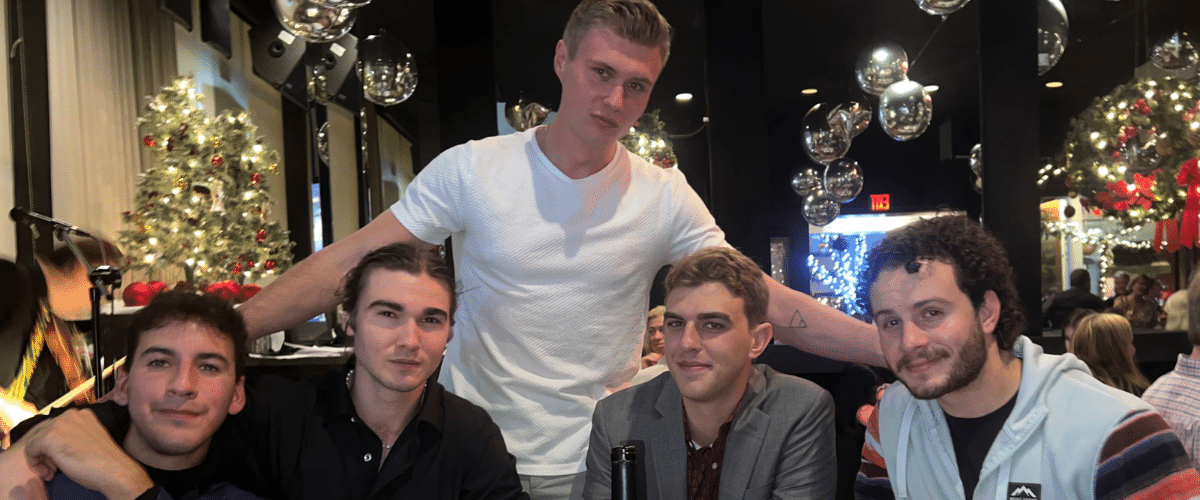The relationship between a wealth advisor and their ultra-high-net-worth clients, defined as individuals with a net worth exceeding $25 million, is fundamentally rooted in the principles of personalization, trust, and dedicated service. In this context, the question of how many clients a wealth advisor can effectively manage becomes not just operational but deeply philosophical, touching upon the very essence of what ultra-high-net-worth individuals seek in their advisory relationships.
Senior Portfolio Manager & Senior Wealth Advisor Thane Stenner of Stenner Wealth Partners+ at CG Wealth Management Canada explores the delicate balance between quantity and quality of client relationships and the importance of emphasizing attention, service, and the overall care and success of clients above all else
Understanding Ultra-High-Net-Worth Clients’ Service Expectations
Ultra-high-net-worth clients, with their extensive assets and complex financial landscapes, demand a level of service that goes beyond the standard wealth management offerings. They seek advice in financial planning and investment management as well as a personalized experience that acknowledges their unique needs and aspirations.
“When we serve our clients,” says Stenner, “We tailor financial solutions that address the complexities of their wealth while embracing a culture of responsiveness to inquiries and market movements. At the end of the day, we focus on a depth of personal attention that makes each client feel valued and understood.”
For wealth advisors, meeting these expectations necessitates a highly individualized approach. Each client interaction must be informed, thoughtful, and bespoke. As such, the capacity to maintain this level of service becomes a critical factor in managing client loads. Advisors must carefully balance their client roster to ensure that each ultra-high-net-worth individual receives the dedicated focus and time required to nurture a trusting, long-term advisory relationship. Quality of service must never be compromised for quantity, setting a high bar for wealth management practices catering to this elite clientele.
The Impact of Advisor Capacity on Client Experience
The number of clients an advisor manages directly impacts the caliber of service delivered, especially within the realm of ultra-high-net-worth wealth management. An advisor’s capacity to allocate sufficient time, ensure availability for meetings, and personalize advice diminishes as their client list expands. This is particularly critical for ultra-high-net-worth clients, who require detailed, bespoke financial strategies that consider the complexities of their wealth.
Exclusivity is a cornerstone of premium service for ultra-high-net-worth clients. It ensures that advisors can dedicate the necessary time to deeply understand each client’s financial landscape, aspirations, and concerns. This understanding is pivotal for crafting tailored strategies that align with the client’s goals.
Notes Stenner, “Maintaining a manageable number of client relationships is essential for wealth advisors. It not only enables the delivery of high-quality, personalized service but also reinforces the trust and satisfaction of ultra-high-net-worth clients, fostering a sense of exclusivity and prioritization that these clients rightfully expect.”
Optimal Client-Advisor Ratios for Ultra-High-Net-Worth Portfolios
Determining the optimal client-to-advisor ratio for managing ultra-high-net-worth portfolios requires an understanding of several key factors. The complexity of client needs is paramount as ultra-high-net-worth individuals often have intricated financial situations requiring customized strategies, making it essential for advisors to have the bandwidth to delve deeply into these complexities. The frequency of interactions needed varies among clients, with some requiring more regular communication and hands-on guidance than others.
“An advisor must gauge the level of engagement needed to satisfy each client’s expectations fully,” notes Stenner.
The advisor’s support infrastructure plays a crucial role in defining these ratios. A well-resourced team with specialists in various areas of wealth management can allow an advisor to efficiently manage a larger number of clients without compromising service quality. However, without such support, the advisor might need to limit their client list more strictly to maintain high service levels. Establishing an optimal client-advisor ratio, therefore, involves balancing these factors to ensure each UHNW client receives the attentive, personalized service they demand.

Photo: DepositPhotos.com
Strategies for Wealth Advisors to Maintain Quality with Growth
As wealth advisors expand their client base, maintaining and even enhancing the quality of service for ultra-high-net-worth clients becomes a pivotal challenge. Leveraging technology is a critical strategy in this endeavor. Advanced financial planning tools and customer relationship management (CRM) systems can streamline operations, personalize client interactions, and provide real-time insights that allow for more responsive and informed advice.
Building a skilled support team is another essential strategy. A team comprising skilled advisors in various aspects of wealth management can offer specialized advice and ensure that all client needs are met promptly and efficiently. This collaborative approach allows the primary advisor to focus on strategic oversight and personalized client relationships while leveraging the team’s specialty for technical analysis and solution implementation.
Implementing client segmentation strategies is also beneficial. By categorizing clients based on their needs, complexities, and preferences, advisors can tailor their service model to each segment, ensuring that all clients receive the appropriate level of attention and customized service. This strategic segmentation helps in efficiently allocating resources and maintaining high service standards across a growing clientele.
For ultra-high-net-worth individuals, the essence of a fruitful wealth management relationship lies in receiving the dedicated attention and bespoke service they require to navigate their complex financial landscapes. Wealth advisors, therefore, must carefully consider their capacity to serve this niche effectively, recognizing that exceeding this capacity risks diluting the quality of service that is the cornerstone of their value proposition. By adhering to a philosophy that prioritizes deep, meaningful engagement over sheer numbers, wealth advisors can fulfill the exacting expectations of their ultra-high-net-worth clients and foster long-term, trust-based relationships.
Thane Stenner holds cross-border licenses in both the USA and Canada through FINRA and CIRO. His previous roles at Morgan Stanley Wealth Management included Managing Director, International Client Advisor, Institutional Consulting Director, and Director of Alternative Investments, where he and his team specialized in portfolio management for ultra-high-net-worth individuals.
A cum laude graduate from Arizona State University, Stenner also completed the Executive Program at Harvard Business School. His distinctive knowledge has gained recognition in numerous business news platforms, such as the Globe & Mail, Canadian Family Offices & BNN Bloomberg.
Published by: Martin De Juan









